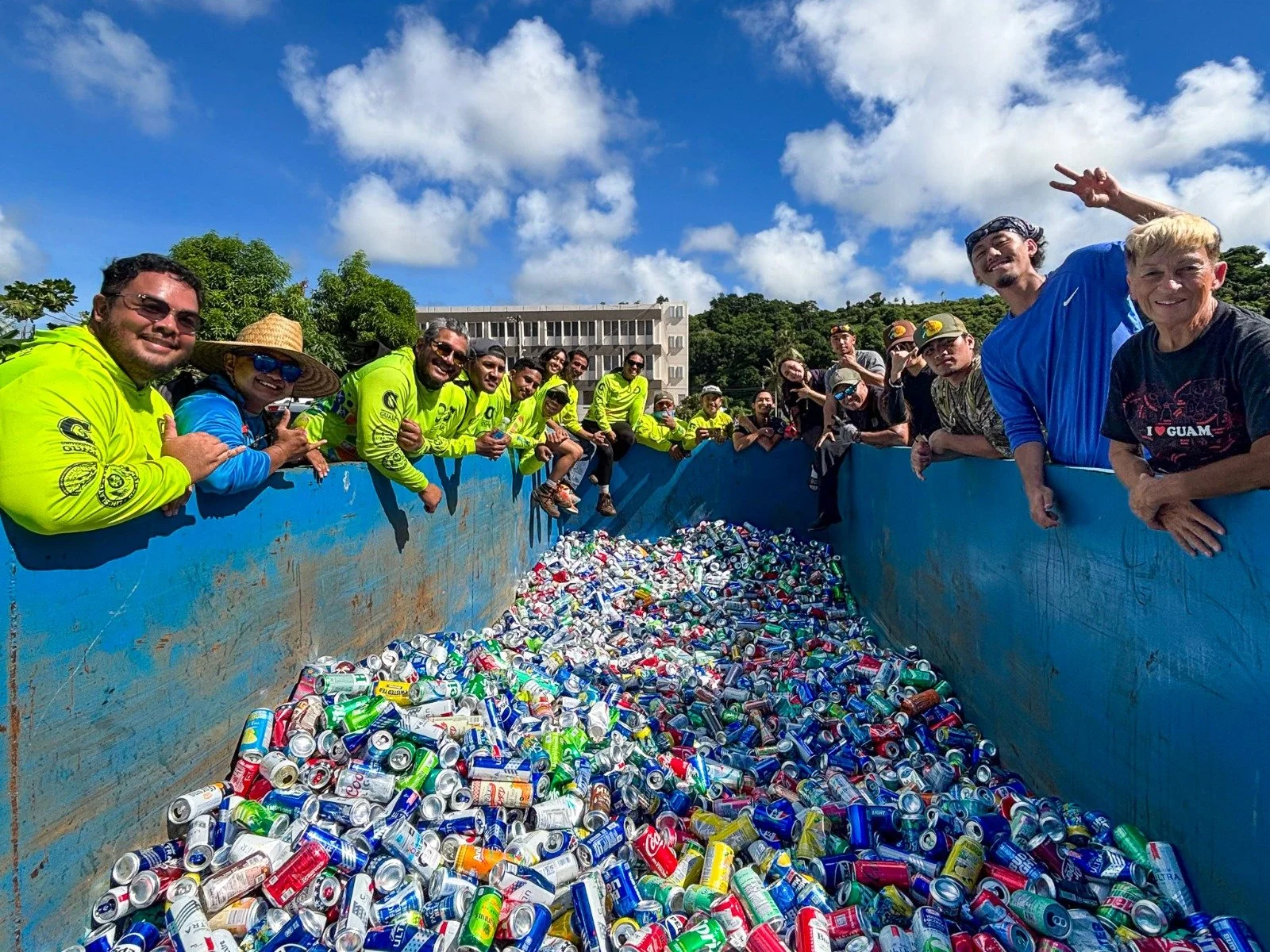
Waste and Recycling Management
In order to become climate resilient, U.S. islands need long-term, sustainable solutions to address the management of solid waste on islands.

Solid waste and recycling management is a pressing issue in island communities. Lack of funding and political will have sidelined improvement efforts for both trash collection and recycling programs on islands, exacerbating the issue. With finite available land, landfill options are sparse, leaving few options for island communities. Hostile and unproductive debates about incineration and its impacts on air quality and human health often dominate conversations about solid waste management. Island communities and their government partners should explore innovative solutions like transitioning islands to circular economies that turn waste into resources. The principles of a circular economy are to design out waste and pollution, keep materials in use, and regenerate natural systems. Long-term, innovative, and sustainable waste and recycling management solutions need to be driven by island communities with support from government policies that are locally relevant and work in practice for island communities.
Island ecosystems are fragile and without sustainable waste and recycling management solutions that take into account each island’s unique environmental and human needs, island ecosystems will suffer.
The following waste and recycling management related federal policy recommendations will help U.S. islands achieve climate resilience:
Bring locally relevant program support to islands and provide technical assistance, capacity support, and funding to establish effective waste management systems including trash, recycling, and large-scale composting programs.
Support and fund the development of island solid waste models that strive for a circular economy approach that prioritizes and incentivizes reuse practices and reduces new production of solid waste.
Fund data collection efforts on U.S. islands to identify current waste systems and highest needs to ensure that future funding and programs are targeted to address each islands’ specific waste management challenges.
Fund research and pilot programs on U.S. islands to study and test innovative solutions for waste management that do not compromise air quality or lead to excess pollution, like incinerators.
Disincentivize false solutions such as bioplastics that are marketed as compostable but are only compostable under very particular circumstances that are likely not accessible to U.S. island communities such that these plastics end up in the landfill.
Collaborate with ecotourism operators and, especially, global hospitality brands, to lead on waste reduction.
